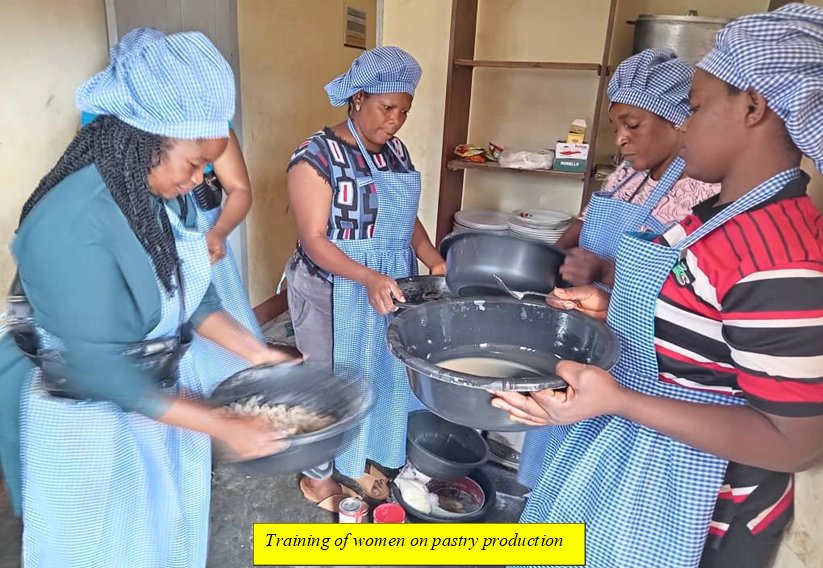Women's Empowerment
Background
In Cameroon, like many African countries, women often face marginalization and denial of certain rights, limiting their ability to fully exploit their potential and contribute to the development of their communities. To address this, a program has been implemented to empower women socially and economically through capacity building and the provision of micro-credits for income-generating activities and micro-businesses.
Intervention Strategy
The intervention strategy aims to empower vulnerable women through the provision of revolving funds and micro-credit schemes. It also supports women farming groups with labor-saving devices and post-harvest equipment to enhance productivity and improve their agricultural value chain. Additionally, it empowers women economically through the provision of start-up capital and materials to engage in small income-generating activities.Objective
The objective is to build the resilience of women and girls by empowering them to meet their needs.
Achievements
Under this program, significant achievements have been made under three main interventions:
- One-hundred and seven (107) women groups, with an average membership of 30 women, have been provided with micro-credits at very low interest rates to support income-generating activities.
- Approximately 3500 women have been trained on micro-enterprise development, enabling them to successfully establish and run their businesses.
- More than 3500 women have been trained and equipped on agricultural techniques, fisheries, and animal husbandry to efficiently set up their farms.
The program aligns with the UNDP strategic plan 2021-2025 and the gender equality strategy 2022-2025, which aim to accelerate progress towards the sustainable development goals (SDGs) and strengthen resilience to crises and shocks. UNDP Cameroon has implemented initiatives to promote women's economic empowerment, enhance their participation in inclusive governance and peacebuilding, and reduce gender inequalities and discrimination in the areas of environment, natural resources, and climate change.
TESTIMONIES
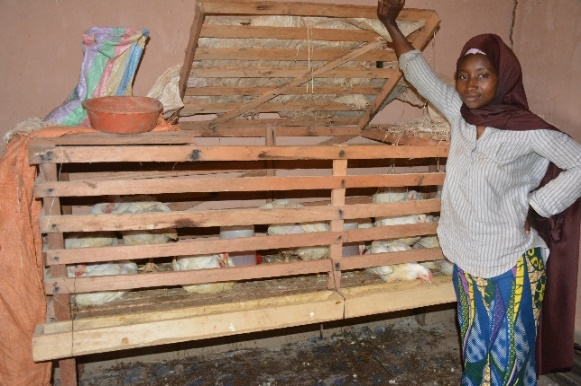
The story of Talla Mariamou, an internally displaced person (IDP) from Ndu, Cameroon, is a heartbreaking account of the impact of the Anglophone crisis on her and her family. The crisis led to the destruction of their home and livelihood, forcing them to flee to Bamenda, where they now live in abject poverty, facing malnutrition and poor health. Talla's experience is a stark reminder of the devastating effects of conflict on innocent civilians, particularly women and children.Talla's ordeal began when their house was burnt to ashes following a series of attacks in the village. The husband’s bike was stolen, and her business shed was destroyed. With all the insecurity and tension, they had to run to Bamenda town, which was a bit calm, and since then, her life has never been the same. Moving to Bamenda was not a smooth journey; they moved from one village to another, seeking refuge in homes of people by the roadside until they arrived in Bamenda. This took a week, and when they finally reached, they had nothing at all apart from their children. She and her husband now live in abject poverty as the crisis has rendered them homeless, with malnutrition and poor health becoming the order of the day. She was pregnant at that time, and continuous gunshots and trauma made her give birth prematurely.The search results provided by You.com offer insights into the plight of internally displaced persons (IDPs) in various regions, including Syria, Palestine, Nigeria, and Myanmar. These snippets shed light on the challenges faced by IDPs, including lack of sufficient medical care, humanitarian aid, and the impact of conflict on their lives. The stories of IDPs from different parts of the world underscore the urgent need for humanitarian support and intervention to address the needs of displaced populations.Talla's story highlights the urgent need for support and assistance for internally displaced persons, especially women and children, who are among the most vulnerable in conflict-affected regions. It also emphasizes the importance of addressing the root causes of conflict and displacement to prevent further suffering and hardship for innocent civilians..
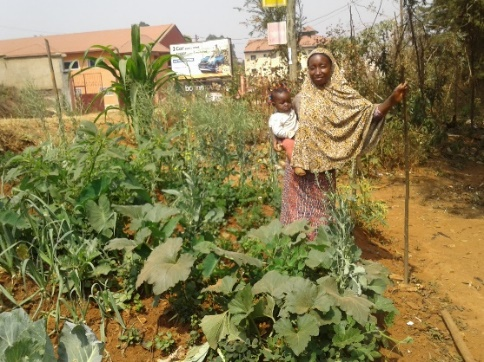
Based on the information provided, Talla Mariamou and her family face significant challenges in accessing a balanced and nutritious diet. Their main source of protein is fish consumed fortnightly and beans consumed once a week. They also consume the cheapest fruits, banana, and pear weekly and eat low standard meals twice a day. When there is not enough food, they prioritize satisfying the younger children and often go hungry themselves. This situation has led to a significant decline in their living standards, with Talla expressing the difficulty of affording meals and the inability to send any of their children to school.
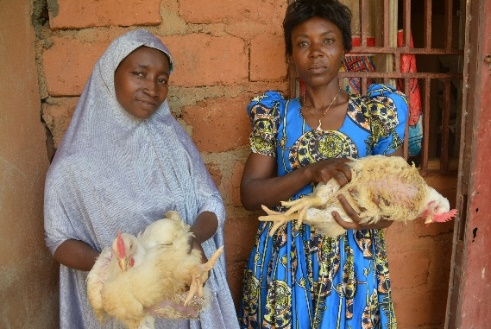
The intervention by SHUMAS-MANOS UNIDAS has had a transformative impact on Talla Mariamou's life and her family. With the startup materials provided, she was able to set up a poultry and gardening farm, securing a livelihood as a poultry farmer. The positive changes resulting from this support have been remarkable. Talla's monthly earnings from the sales of fowls soared to 100,000F CFA, a significant increase from the 15,000FCFA she previously earned from sales of fruits and vegetables. This growth in income has allowed her to restock her farm, purchase chicks, and enroll two of her children in school, marking a significant improvement in their lives.

2. Djouma Kaigama
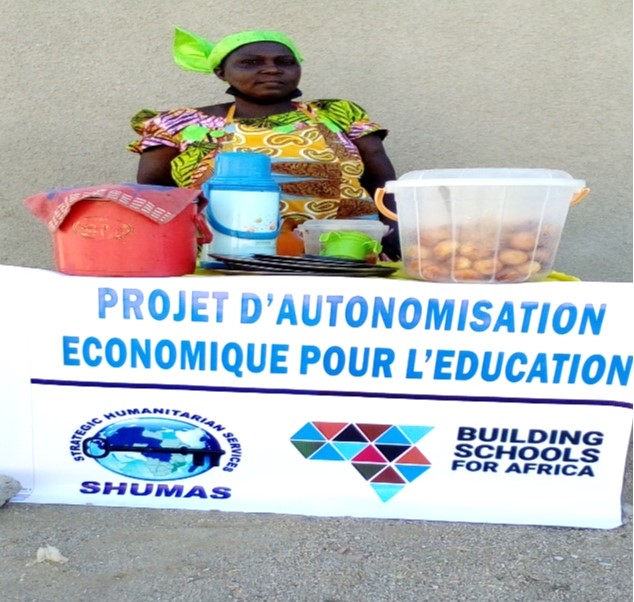
The story of Djouma Kaigama, an internally displaced woman from the Extreme North Region of Cameroon, reflects the profound impact of intercommunal conflicts on vulnerable individuals and families. Following the loss of her husband and the destruction of her home and properties, Djouma faced significant challenges in securing shelter and providing for her four children upon seeking refuge in Maroua. However, through the support of SHUMAS and BSFA, she was able to participate in income-generating training activities and received start-up capital to set up a mini-restaurant, which was her previous occupation before the conflict arose. This support has enabled Djouma to earn a daily income of 2,500F - 3,000Frs, allowing her to pay rent, her children's school fees, and meet household needs.
GALLERY
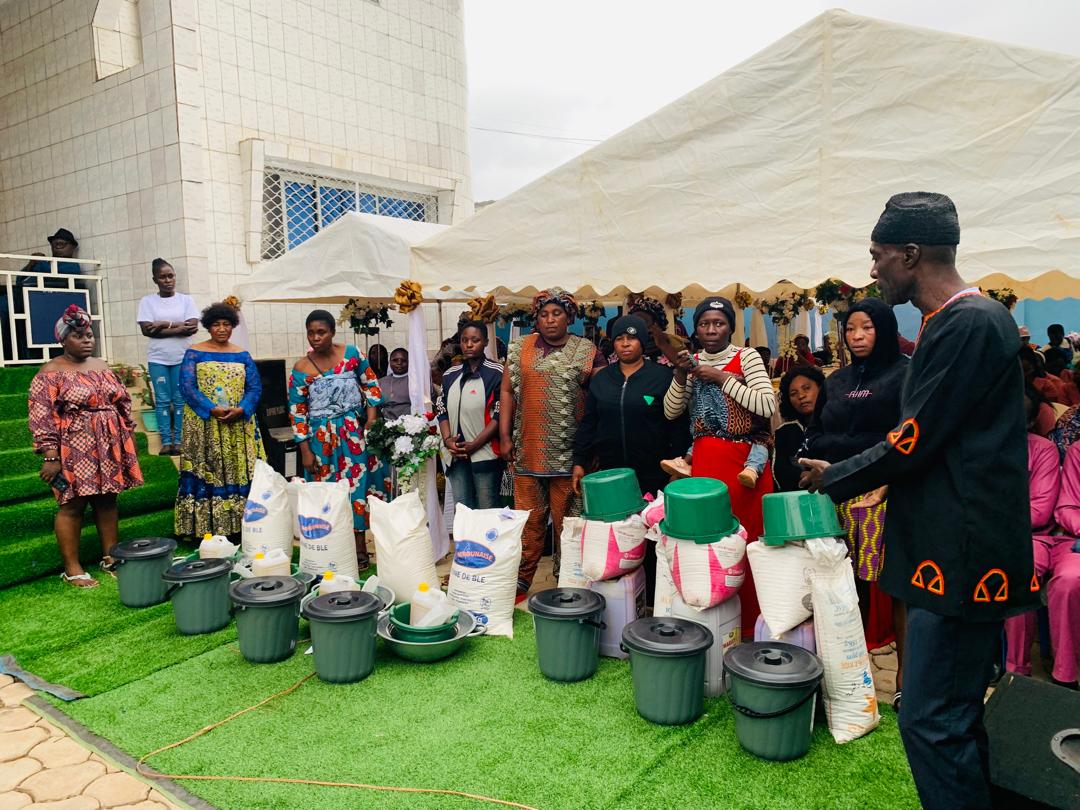 (Start-up material distributed to women in need)
(Start-up material distributed to women in need)
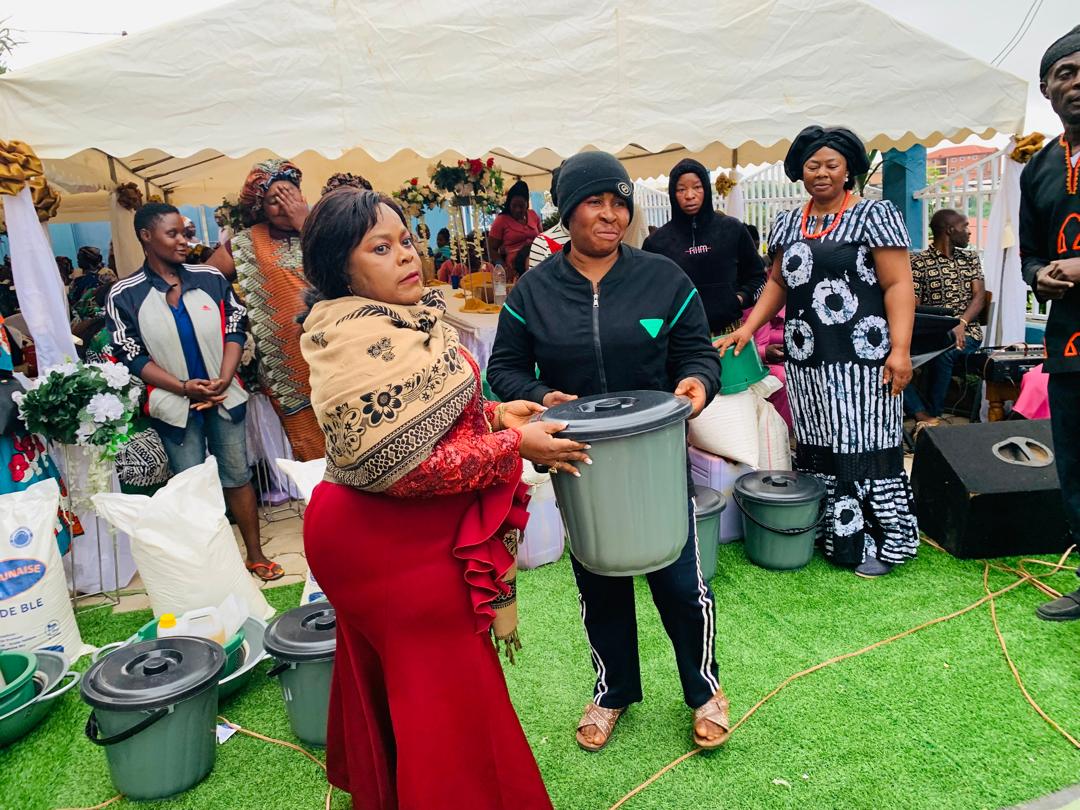
(Handing over of start-up materials to the beneficiaries)
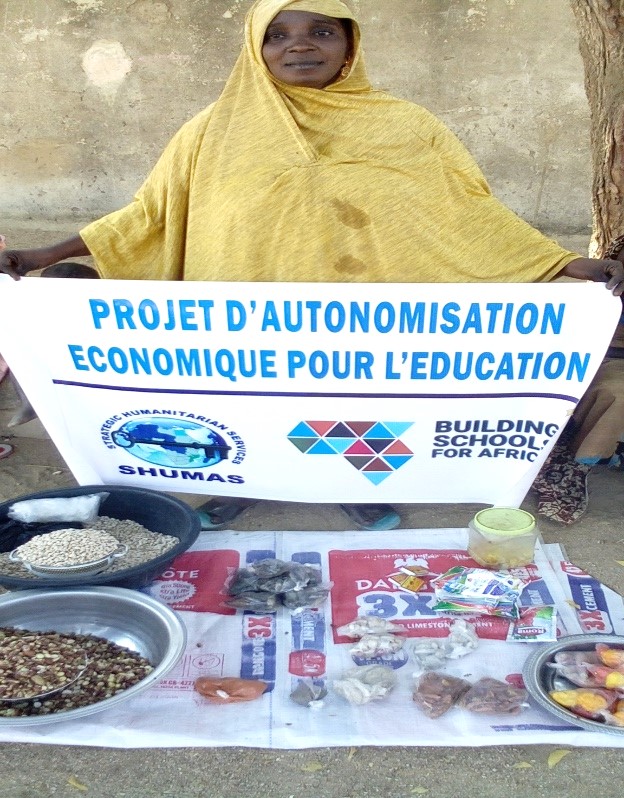 (Beneficiary of the empowerment program in the Far-North Region)
(Beneficiary of the empowerment program in the Far-North Region)
